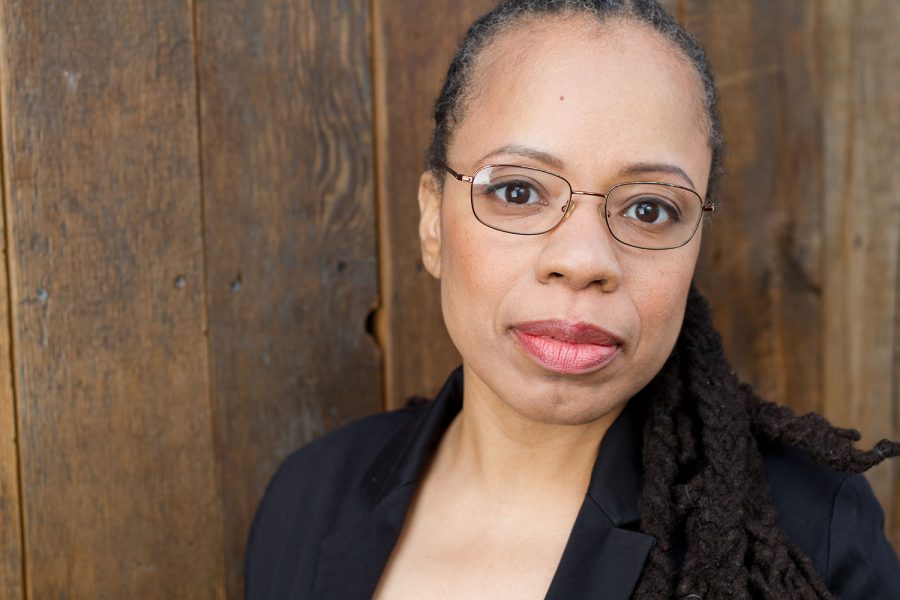University of Iowa Cinematic Arts department to highlight Black artists with ‘Black Lives on Screen’ virtual series
The University of Iowa Cinematic Arts Department is presenting a series of virtual events this spring that will highlight work from Black artists and filmmakers, including the UI’s own faculty.
Contributed photo of Tracie Morris
February 17, 2021
This spring, the University of Iowa Cinematic Arts Department will offer a unique look to the history and presence of Black artists in the film industry and the impact that Black visionaries continue to make on art as a whole.
Beginning today and continuing weekly throughout the spring semester, the Department of Cinematic Arts will feature a series of virtual screenings and discussions, titled “Black Lives on Screen.” The series showcases and discusses the work of a diverse range of acclaimed African American and Black filmmakers, artists, and scholars — many of which are faculty members at the UI — and can be accessed on the Cinematic Arts website.
Aiming to bring an inclusive, educational, and inspiring experience to the UI community, the series will celebrate the rich history, present, and future of Black cinematic expression and artistic talent.
The series kicks off tonight with a screening of the 2018 film “Mr. Soul” co-hosted by FilmScene, the first few events will dive into the themes and impact of films like Marvel’s “Black Panther,” Julie Dash’s “Illusions,” and Cheryl Dunye’s “The Watermelon Woman.” Later, the events will pull other artistic mediums into cinema, including poetry and creative writing.
RELATED: FilmScene and Englert awarded grant to highlight Black artists
UI Writer’s Workshop Professor Tracie Morris will give a poetic performance on May 6. The five-part pre-recorded project, titled “Black Spring,” will politically, historically, and culturally contextualize the Black Lives Matter protests of last spring and summer, and will be performed around the first anniversary of the protests spurred nationally following George Floyd’s murder.
“The pervasiveness of this screen culture, both in documenting Black people, brutality against us as well as joy, love, daily life, social life, means we can have a different type of investment in [film],” Morris said. “I think lots of Black artists who haven’t previously engaged in cinematic arts have been or will be doing so.”
Presenting both the screenings for “Illusions,” and “The Watermelon Woman” is Allyson Nadia Field, an associate professor of cinema and media studies at The University of Chicago. In addition to discussing these films, Field will also focus on the contemporary response to another important historical piece of cinema, “Something Good-Negro Kiss,” a rediscovered “lost film” that was added to the American National Film Registry in 2018.
In an email to “The Daily Iowan,” Field wrote that there is much to learn about what the film is doing and the many meanings it conveys, both in historical and contemporary contexts, but especially about how other films like it can change public perception, but also act as sources for artistic creativity.
“Understanding that history is crucial for assessing where we are now,” Field told the “DI.” “Much of that history has been lost, but I have been committed in my research to bringing it to light so it can continue to have an impact.”
RELATED: University of Iowa professor’s graphic novel sheds light on historical racial uprising
Key organizer of Black Lives on Screen and UI Cinematic Arts Associate Professor Paula Amad said cinema as an art form has had a complicated but important role in telling the stories of Black individuals over the course of history. She described it as an art form that is particularly suited to exposing social justice issues, whether in the form of documentary or narrative films.
“The realm of art has an incredibly important role to play in discussing social justice,” Amad said. “Cinema is an extremely important vehicle for bringing people together to learn about and discuss important issues of social justice, for example, with regard to race, power, and representation.”
In addition to examining cinematic arts in the context of the Black Lives Matter protests of last year, Amad said the screenings and discussions are also meant to amplify the diversity of Black voices and stories.
“A lot of people may not know the rich and deep contributions that have been made by African Americans to cinema in this country and around the world,” Amad said. “So, the series is an attempt to give the University of Iowa community the opportunity to learn more about the multifaceted contributions that African Americans have and continue to make to cinematic art.”



